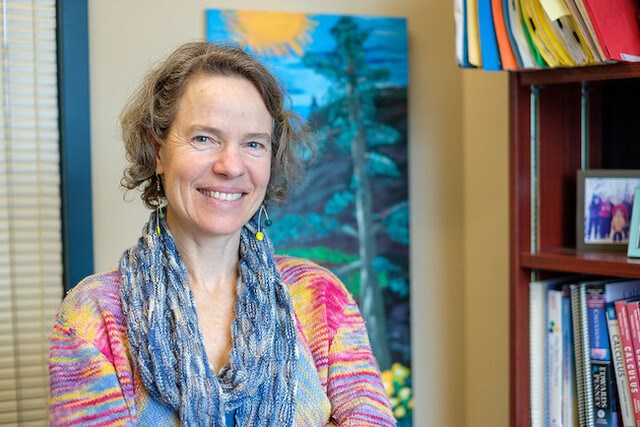New research from UBC Okanagan suggests that polarized and extreme opinions can impact the spread of a pandemic like COVID-19.
Efforts to contain a pandemic can be significantly hampered by opinions and behaviours of people, especially those who think in extremes.
UBC Okanagan associate professor of mathematical biology and study lead Rebecca Tyson says what we think of even the most basic actions changes how fast society will be able to move through the virus.
“While we didn’t have COVID-19 specifically in mind when we conducted our research, we did try to imagine an epidemic that didn’t have a vaccine and that was best prevented by hand washing and other relatively simple actions. Behaviours like these can have extremes on either end of the spectrum, from denying the problem and doing nothing to completely isolating oneself.”
Tyson and her team used a mathematical model displaying the spread of opinion and the spread of disease to find out how the presence, distribution and transmission of extreme behaviours can influence the outcome.
Of particular interest was how quickly a pandemic can form, the peak of the infection, the final numbers of those infected and the risk of a second wave.
“Our results show that opinion dynamics have a profound effect on the progression of disease in a population,” says Tyson.
“In particular, the state of public opinion at the onset of a pandemic can have enormous influence—either dramatically reducing the fraction of the population that will be infected and the peak epidemic size, or making the epidemic worse than it would be otherwise.”
She says the level of trust people have in opinion influencers can rapidly shift a pandemic into growth or decline, such as in Hong Kong where early adoption of physical distancing rules and government regulations helped eliminate the spread.
“Our models show that when faith in opinion influencers, like public health officials, is high, extreme preventative behaviours like quarantine and social distancing spread quickly through the population and the pandemic slows. This is exactly what we’re seeing in places like Hong Kong, Taiwan, Singapore and South Korea.
“I believe this is part of the issue in the United States, where faith in government and public health officials is perhaps weaker than it is elsewhere and where there has been mixed messaging from different levels of government,” Tyson adds.
The study was recently published in the Bulletin of Mathematically Biology with funding from Natural Sciences and Engineering Research Council of Canada (NSERC).


